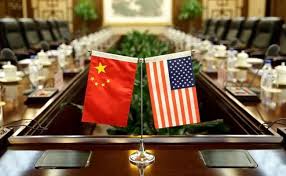
Headline equities of the Japan share market closed down on Wednesday, 30 January 2019, as risk sentiments muted on caution ahead of the conclusion of a Federal Reserve policy meeting and U.S.-China talks with high level negotiations set to begin later stateside. Total 29 sub-indexes of TOPIX fell into red terrain, with shares in Securities & Commodities Futures, Electric Power & Gas, Other Financial Business, Textiles & Apparels, and Warehousing & Harbor Transportation Services issues being notable losers. At closing bell, the 225-issue Nikkei index fell 108.10 points, or 0.52%, at 20,556.54. The broader Topix index of all First Section issues on the Tokyo Stock Exchange dropped 6.33 points, or 0.41%, to 1,550.76.
Tokyo market came under pressure of position-squaring selling by investors who were waiting to see the outcomes of the U.S. Federal Reserve's policy-setting meeting ending later in the day and the ministerial-level trade talks between the United States and China in Washington through Thursday.
All eyes are on a Federal Open Market Committee meeting ending Wednesday. Although the Fed is expected to leave its short-term interest rate unchanged, the nuances of a press conference by Chairman Jerome Powell will be closely watched. Ahead of the start of the two-day FOMC meeting, speculation grew that Fed policymakers would discuss slowing or ending the U.S. central bank's move to shrink its balance sheet.
Top US and Chinese trade officials return to the bargaining table on Wednesday, with extra tension in the atmosphere amid Washington's sweeping prosecution of Chinese telecoms giant Huawei. resident Donald Trump will reportedly meet Chinese Vice Premier Liu He in an attempt to move negotiations forward. But the Justice Department's charges against Chinese tech giant Huawei, its subsidiaries and a top company executive may be a hurdle. China has urged U.S. authorities to end what it called an unreasonable crackdown against Huawei, which has been accused of stealing technology and violating sanctions on Iran.
The world's two largest economies are battling for nothing less than future dominance in critical high-tech industries, according to US Trade Representative Robert Lighthizer, the lead US negotiator. A little over three years ago, Beijing launched a strategic plan dubbed Made in China 2025 that aimed to make the nation the global leader in aerospace, robotics, artificial intelligence, new-generation autos and other areas -- sectors US officials say now represent the crown jewels of American technology and innovation. US President Donald Trump has repeatedly said he favors a healthy Chinese economy but not at the expense of American business and know-how. In specific, US officials are attacking Chinese trade practices they say are unfair, spotlighting the forced transfer of American technology through requirements that foreign companies form joint ventures with local firms, as well as the alleged theft of American intellectual property through hacking. To pressure Beijing, the White House has slapped tariffs on $250 billion in Chinese imports. And Trump is poised to more than double US duty rates on $200 billion in goods from China to 25% on March 2 should the talks fail. Beijing has responded by slapping duties on virtually every product it buys from the United States, or about $110 billion in exports. Given the complexity of issues, a finished agreement is unlikely to emerge from the two days of talks in Washington this week. But US Treasury Secretary Steven Mnuchin said Tuesday he expected significant progress, and noted the governments have another month left in the 90-day truce declared in December.
Daiwa Securities Group Inc. tumbled 6.22 percent after the company announced disappointing consolidated earnings for April-December on Tuesday. Akebono Brake Industry Co. plunged 18.22 percent following its announcement Wednesday morning that the major auto parts maker's request for the start of alternative dispute resolution, or ADR, procedures for out-of-court business reconstruction was accepted. Other major losers included clothing retailer Fast Retailing Co. and automaker Suzuki Motor Corp.
By contrast, electronic parts makers related to Apple Inc. gained ground as the U.S. technology giant's sales forecast for January-March, released Tuesday, fell within market expectations. Taiyo Yuden Co. jumped 4.23 percent and Murata Manufacturing Co. rose 2.57 percent. Shin-Etsu Chemical Co. gained 2.07 percent thanks to its brisk earnings in April-December.
ECONOMIC NEWS: Japan retail sales were up a seasonally adjusted 0.9 percent on month in December, the Ministry of Economy, Trade and Industry said on Wednesday, following the downwardly revised 1.1 percent decline in November (originally -1.0 percent). On a yearly basis, retail sales advanced 1.3 percent - following the 1.4 percent gain in the previous month.
0 thoughts on “Japan Nikkei falls ahead of US China talks Fed decision”